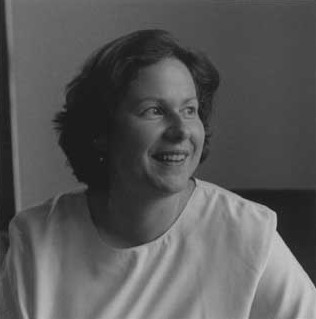Tina Podlodowski
|
Tina Podlodowski Born August 26, 1960 City Council Member Seattle, Washington 550,000 constituents |
Career Overview Elected November 1995 |
Tina Podlodowski was and executive with Microsoft until 1991. She served as executive director of the Lifelong AIDS Alliance from March 2004 through May 2007, leaving to become executive director for Big Brothers/Big Sisters of King, Pierce and Jefferson Counties.
Interview with Tina Podlodowski for Out and Elected in the USA
Q: How did you come to run for the City Council?
A: What really engaged me in running for office was the time that I had spent after I left Microsoft. My entire career was in the hi-tech industry, seven years with Microsoft, and I left in 1992, basically retired, as one of the Microsoft millionaires. Both of my parents are Polish immigrants and I grew up in a blue collar community – in fact my dad was a labor union shop steward and all that – and I think just given that background, there is a very strong theme of giving back to the community that has always been a part of my life. So, when I left Microsoft, the first thing I did was join the board of the Pride Foundation, which at the time was granting about $25,000 a year. It had a very small endowment as a northwest community foundation. Now the Pride Foundation has an endowment that is up over 12 million, and we grant about a million dollars a year, making it the largest queer community foundation in the country at this point.
So, it was through my work with the Pride Foundation and another project that I funded, which was called The Cities Project, which is the Center for Inter-Creative Technology – I didn’t come up with the name (laughing), but it’s basically about computer access and literacy, particularly for communities of poverty and communities of color. I sort of ran into the City Council and the City itself at many turns as we tried to get projects done. In many ways it was not particularly efficient. And also, it wasn’t really making good use of technology. So, I basically ran out of some level of frustration, but also out of the sense that, you know, with a business background and a technology background, so many of the things that are affecting us in the public policy realm these days have a technology component to them. And it would be important to have somebody with that background that was on the Council.
I ended up running in 1995 for an open seat. I’d never run for office before, and ended up winning that seat with about 65 percent of the vote. At City Council, we have nine City Council members and we all run at-large. It is a full-time job and it’s a four-year term. So basically, it is the size of a Congressional District. I guess we’ve implemented campaign finance reform in an effective way because the most you can give to a candidate is $400 in a four-year cycle whether it’s as an individual or a PAC or whatever. That means you have to do a lot of grassroots fundraising. For my race I raised almost a quarter of a million dollars, most of it through like $50 and $100 donations.
Q: You only have a few weeks left in office and are not planning to run again. Why that decision?
A: I made the decision back in April to not run for re-election – not because I couldn’t have won; at that point I really didn’t have an opponent – but because I have two small children. I have a daughter turning four next week and a son that’s two, and one of the things I think, in many ways is an obstacle in this job, is that it is not a 9-5 job – it’s more like a 7 in the morning ‘til 10 at night thing. It is really hard to do that and be an effective parent, you know. Especially when kids are that small, so, when my daughter started to say things like, “I don’t like you to go to work. Why do you have to work?” You sort of look at those priorities and think that there is a pubic service component to this, but I think one of the things that is a constant in most elected officials is that you are scrutinized, and the way you live your life needs to be reflective of your values. For me it was very clear that a lot of the work that I had done around things like including GLBT families in child care initiatives, or trying to figure out how the City Council can work more effectively with the school district, how to work to ensure parents have more time with their kids – you know, it very much hit home that at this time I needed to be spending with my kids.
Q: So what is next professionally or personally or both?
A: Well, the issues that I have always worked on have been issues related to gay and lesbian families with children. I started the first fund in the nation that funded those sorts of projects. There was tremendous controversy around a gift that was made via the Pride Foundation to get books in the Seattle public schools. For me, it’s working on family issues.
Return to Out and Elected in the USA: 1974-2004 index • Go to next article
For information on a touring exhibit version of Out and Elected in the USA: 1974-2004, contact Ron Schlittler at rlschlittler@verizon.net.
